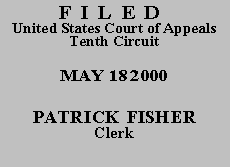

| UNITED STATES OF AMERICA,
Plaintiff-Appellee, v. MARCEL A. HARDWELL, Defendant-Appellant. |
|
The underlying facts of this case are set forth in previous decisions of this court, see Hardwell, 1998 WL 43171, at **1; United States v. Hardwell, 80 F.3d 1471, 1479-82 (10th Cir. 1996). We repeat only those facts relevant to the single and narrow issue raised on appeal: whether the drug amount from an attempted reverse sting operation in April of 1993 should be considered relevant conduct in sentencing Mr. Hardwell for his conviction of conspiracy to possess cocaine with intent to distribute.
Mr. Hardwell was arrested during a second reverse sting operation in August of 1993. Both sting operations were targeted at Mr. Hardwell's cousin, Dennis Hardwell. The government's attempt to set up the first reverse sting operation in April of 1993 failed when, due to a malfunction of telephone recording equipment, persons at Dennis' residence became aware that a conversation with an informant had been recorded. Subsequently, Marcel Hardwell went to the informant's hotel room and confronted him, asking him why he intended to "set up" Dennis. See Hardwell, 80 F.3d at 1490. After the confrontation of the informant, Mr. Hardwell walked down the hall of the hotel, banging on the walls and yelling "Five-O." While negotiating the drug sale in the second reverse sting operation in August of 1993, Marcel Hardwell made several statements to an undercover agent, to the effect that he was part of an organization distributing cocaine, that they had been dealing a kilo a day from January to June [1993], and that they had lost four kilos of cocaine and $100,000, but were still operating.
When determining a sentencing range, the court must include as relevant conduct additional drug amounts that were part of the same course of conduct or common scheme or plan as the offense of conviction, whether or not the defendant was convicted of offenses connected to the additional drug amounts. See United States v. Roederer, 11 F.3d 973, 978-79 (10th Cir. 1993). Determining relevant conduct in the drug conspiracy setting involves an inquiry into 1) when the defendant joined the conspiracy, 2) whether the conduct in question was in furtherance of the joint criminal activity, and 3) whether the conduct was reasonably foreseeable by the defendant. See Hardwell, 1998 WL 43171, at **2 (citing United States v. Barragan, 915 F.2d 1174, 1179 (8th Cir. 1990)) (further citation omitted). On appeal, Mr. Hardwell contends that the drug amounts from the April 1993 incident should not be included in his sentencing calculation because there is no evidence that he participated in a conspiracy to distribute drugs at that time. He cites case law to support his position, and argues that both his conduct at the April 1993 incident and his statements to the undercover agency during the August 1993 incident can be explained in a manner inconsistent with his participation in the attempted drug transaction in April of 1993.
The district court concluded that the drug amounts from the April 1993 incident should be charged to Mr. Hardwell based on the following factual findings, supported by testimony at a second resentencing hearing and other evidence in the record:
1. Mr. Hardwell left his employment in Houston, Texas, in April of 1993 and moved to Kansas, where his cousin, Dennis, was a resident.
2. In January of 1993, prior to moving to Kansas, Mr. Hardwell had received several large amounts of money by wire transfer from his cousin, Dennis.
3. Mr. Hardwell's conduct and statements in confronting the informant during the April 1993 attempted reverse sting operation indicated his knowledge of Dennis Hardwell's illegal drug activities.
4. Mr. Hardwell's actions after the confrontation, banging on the walls and yelling, were an attempt to alert the police that he knew they were there, and meant to assist Dennis in some way.
5. The statements made by Mr. Hardwell to the undercover agent during the August 1993 incident demonstrated his knowledge about Dennis Hardwell's cocaine organization and indicated participation for a period of time.
Our review of the record convinces us that the district court's factual findings are not clearly erroneous. They also support the district court's further factual finding that Mr. Hardwell was involved in Dennis Hardwell's drug-selling organization in April of 1993 and that, therefore, the amount of drugs involved in that incident were foreseeable by him and properly chargeable to him for sentencing purposes. Mr. Hardwell's arguments on appeal lack merit. Alternate theories of innocence based on the underlying facts do not demonstrate that the district court's findings are clearly erroneous under a preponderance of the evidence standard, based on the evidence as a whole. See Richards, 27 F.3d at 468; United States v. Schorovsky, 202 F.3d 727, 729 (5th Cir. 2000).
The judgment of the United States District Court for the District of Kansas is AFFIRMED.
Entered for the Court
Circuit Judge
*. This order and judgment is not binding precedent, except under the doctrines of law of the case, res judicata, and collateral estoppel. The court generally disfavors the citation of orders and judgments; nevertheless, an order and judgment may be cited under the terms and conditions of 10th Cir. R. 36.3.
1. After examining the briefs and appellate record, this panel has determined unanimously to grant the parties' request for a decision on the briefs without oral argument. See Fed. R. App. P. 34(f); 10th Cir. R. 34.1(G). The case is therefore ordered submitted without oral argument.